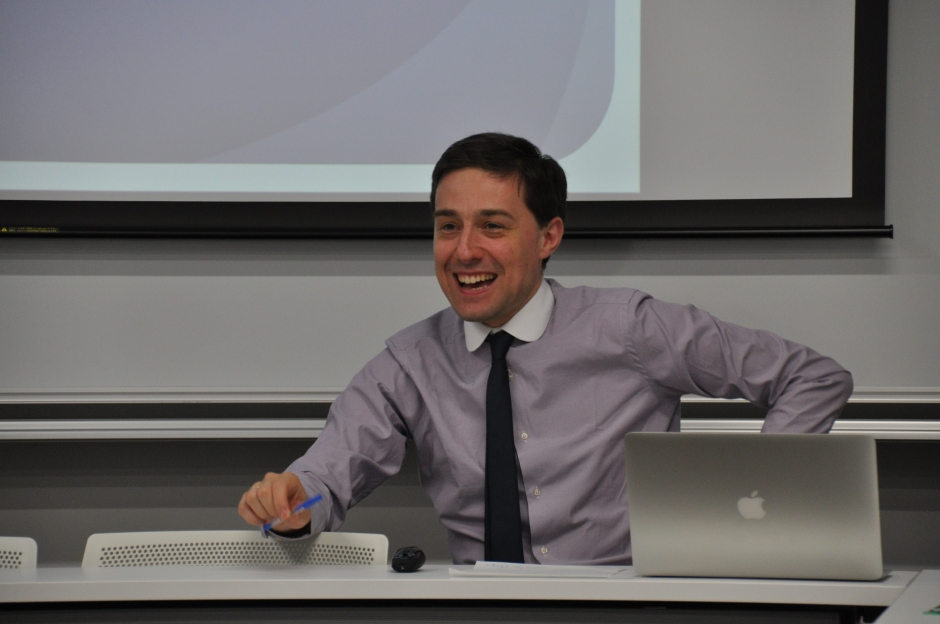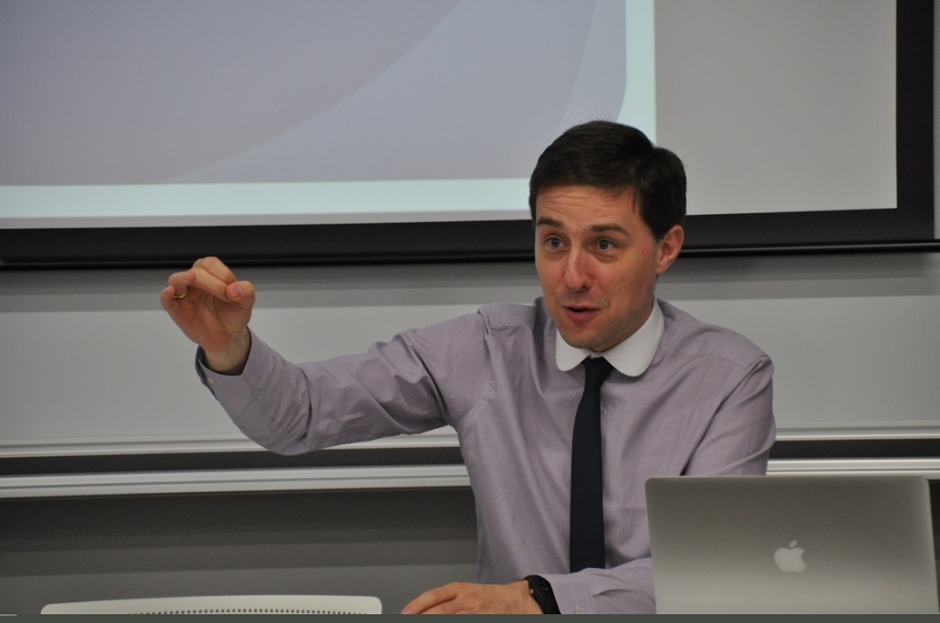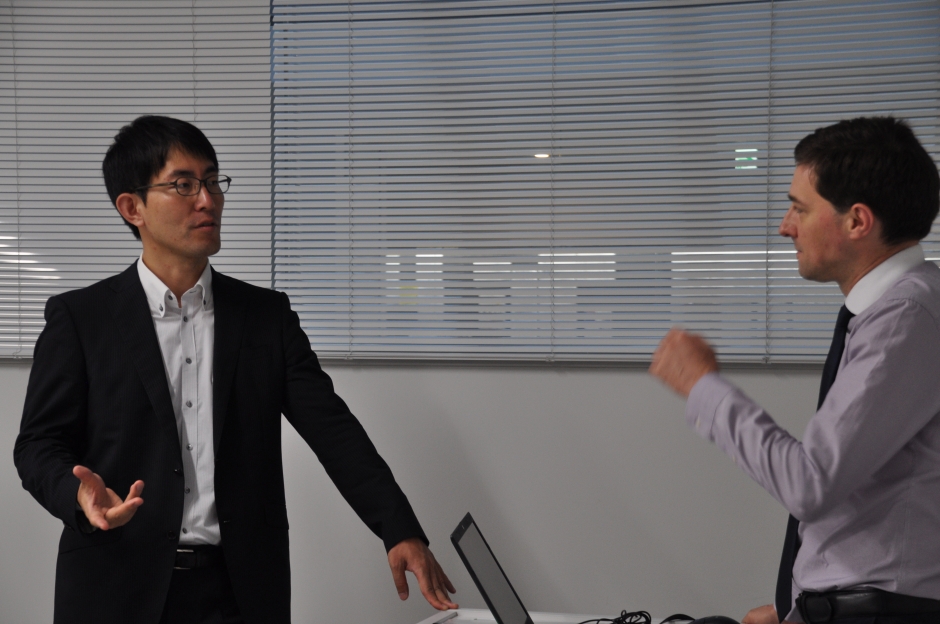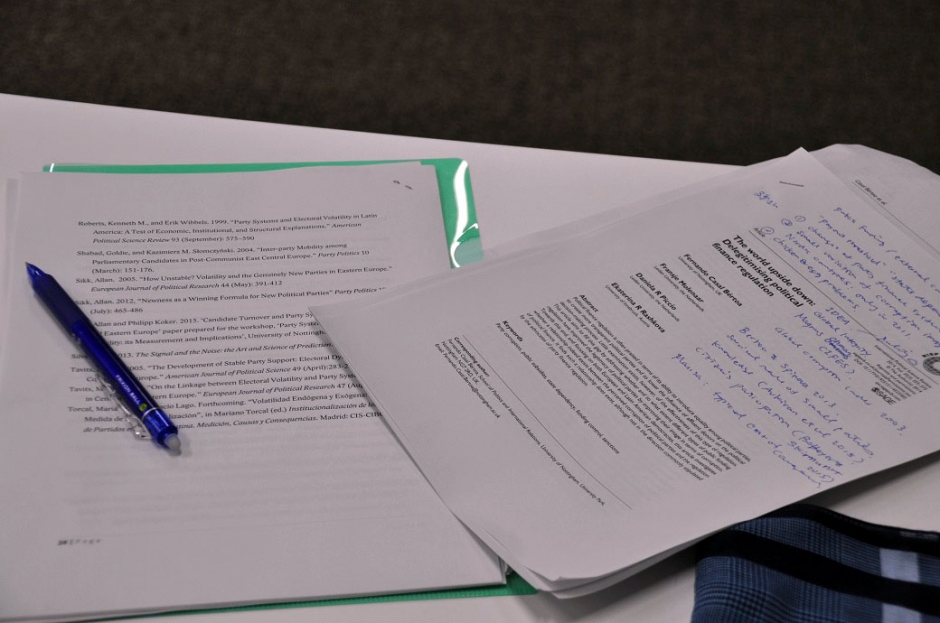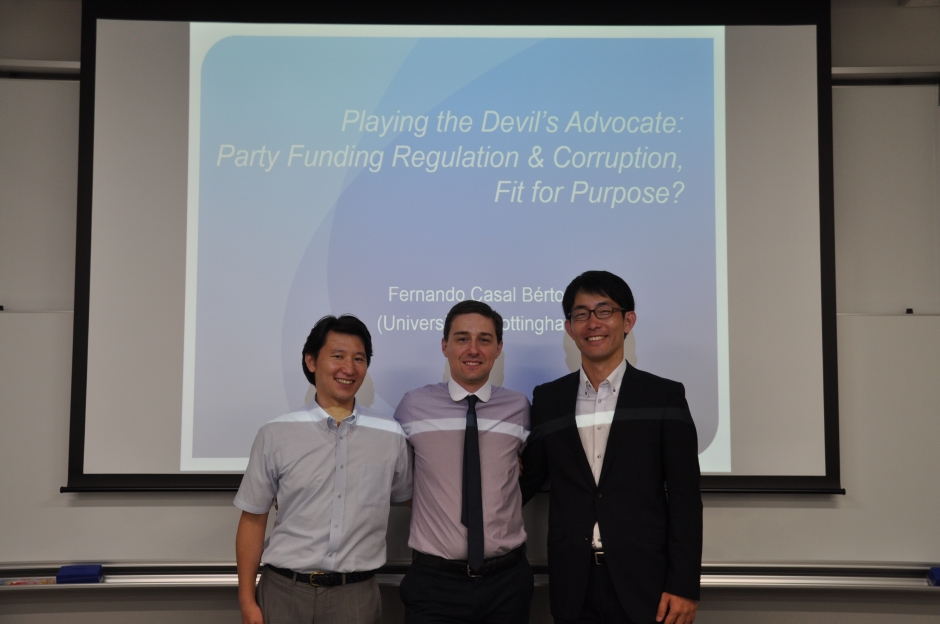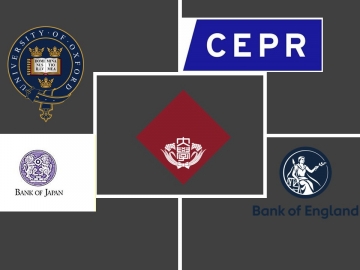On August 5th, Waseda University’s Center for Positive Political Economy as a Top Global University Project hosted an international workshop entitled “Cross-National Research on Party Systems and Party Finances.” Dr. Fernando Casal Bértoa from Nottingham University was invited to talk about his latest research. Dr. Casal Bértoa holds Ph.D from European University Institute in Florence under the supervision of late Peter Mair –famous comparativist–, and publishes many articles. The workshop consisted of the following two sessions.
1st Session
In the first session, Dr. Casal Bértoa reported how political finance regulation could hamper political corruption. His research motivations derive from a gap in the literature on “Politics and Money”. Based on a new dataset which has coded electoral laws in a large number of countries, he and his colleagues found that none of the hypotheses put forward in the literature were found significant. For example, the relationship between a higher reliance on public funding and a lower political corruption did not find any support. Neither was the relationship between a higher regulation on private funding and a lower political corruption turned out effective. Dr. Casal Bértoa also showed that small parties are more likely to survive in countries with generous public subsidies to political parties.
Discussant, Dr. Jeyong Sohn from Rikkyo University, made comments on the presentation in three ways. First, he suggested that an inclusion of change in independent variables would allow Dr. Casal Bértoa to test the hypothesis in a more dynamic way with temporal differences. Second, he also suggested that Dr. Casal Bértoa would gain more robustness of results by conducting supplementary analyses by changing the cases to be analysed. Third, Dr. Sohn suggested that Dr. Casal Bértoa include the years of democratic experiences to avoid a possible endogeneity problem.
2nd Session
In the second session, Dr. Casal Bértoa made a presentation on electoral “volatility”, an index widely used in political science in the last three decades. “Volatility” refers to a net change of votes/seats between two consecutive elections. Yet, some limitations have been pointed out as the index tends to be inflated when parties split and merge over the two elections. To tackle this problem, Dr. Casal Bértoa has developed as a joint work with his collaborative colleagues a new way to calculate and correct for the volatility scores. He suggested that one should collect information on the number of party members, media, etc. to assess the ‘capital’ of political parties to better reflect the size of the political forces between the two elections.
Discussant Professor Airo Hino (Waseda University) congratulated him for an innovative idea of correcting for the index of electoral “volatility”. He welcomed the approach by illustrating an inflated tendency of the index with the example of the Japanese party system in the 1950s. Professor Hino discussed that an alternative way to correct for the electoral “volatility” is to look at changes of parliamentary members. It was suggested that there are advantages and disadvantages in each index in terms of validity and reliability as well as speediness to arrive at an index score.
Lively discussions followed in both sessions and the workshop went on for four hours. “Ohkuma Bear”, the university mascot, was given to Dr. Casal Bértoa, at the end of the workshop to thank his visit in the midst of the record consecutive ‘very hot’ days in Tokyo and to commemorate the successful workshop.
